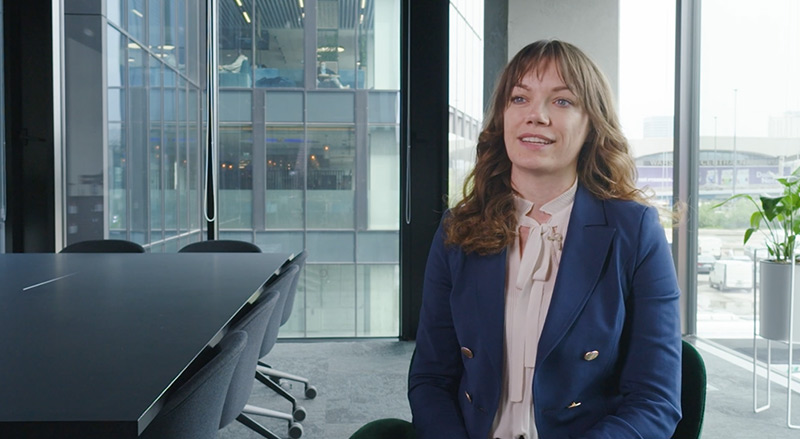The Polish healthcare industry is determined to stay at the edge of innovation and is actively looking at how best to introduce innovative technologies such as blockchain, IoT and AI to better the lives of patients and professionals.
This is according to Ligia Kornowska (Managing Director of the Polish Hospital Federation), who was speaking at the sidelines of the recent Technology of Tomorrow Conference in Warsaw. The Federation is the biggest association of its kind in the country, with some 500 hospitals falling under its umbrella.
‘Blockchain is extraordinary because it provides us with a transparent technology for saving all of the information and operations,’ she said. ‘We can see the usage of blockchain technology in, for example, providing cold chain delivery of medical drugs or medical devices.’
She added that Poland is currently using blockchain technology as part of a data donation project which provides tools for patients to give their consent for using their medical data and in research and development.
‘Based on this information or consent, we can use medical data for drug research and algorithm training. And we use blockchain technology to save all information – every medical procedure. (We also track) what is going on with that consent and how the patient’s data is being used. Because of that, we give patients the power to control how their data is being processed.’
Blockchain, healthcare and ethics
Kornowska said that there are ethical and regulatory considerations when using blockchain in healthcare – especially when it comes to data processing. She noted that putting data on-chain means that it effectively cannot be deleted and that this must be considered alongside the EU’s GDPR laws.
‘We shouldn’t store personal data because it cannot be deleted if people want to remove it at a later date. So we have to consider these privacy issues. However, we also have to remember that blockchain is a great technology for following all of the other rules written in the GDPR – such as transparency and checking for fraud.’
Looking forward in the healthcare sector’s use of blockchain
Kornowska said that she is ‘incredibly hopeful’ about blockchain technology and the novel ways that it can be incorporated into the healthcare sector. She noted that the blockchain is relatively nascent and that there is still much that healthcare experts and hospital directors can learn from the technology and how best to use it. ‘I believe that in the coming years, there will be more and more need to use blockchain technology – especially when it comes to transparency.’
How the medical industry can leverage blockchain technology
Using blockchain to secure access to medical data involves creating a decentralised and tamper-proof system that allows patients, healthcare providers, and other authorised entities to access and share medical information while maintaining data privacy and security.
Here are some potential use cases for blockchain in the medical industry:
- Electronic Health Records (EHRs) and patient data management: Blockchain can provide a secure and decentralised platform for storing and managing electronic health records. Patients would have more control over their data and be granted access to healthcare providers when needed, reducing the risk of data breaches.
- Data interoperability and sharing: Blockchain can enable secure and standardised sharing of patient data between different healthcare providers, improving care coordination. Patients’ consent for data sharing can be efficiently managed on the blockchain.
- Clinical trials and research: Blockchain can enhance the transparency and integrity of clinical trial data. Researchers and regulators can verify the authenticity of data, ensuring that results are accurate and unbiased. It can also streamline the process of patient recruitment for trials.
- Counterfeit prevention: Blockchain can track the movement of pharmaceuticals from manufacturers to consumers, ensuring the authenticity and integrity of drugs. This can help in preventing counterfeit drugs from entering the supply chain.
- Medical billing and claims processing: Blockchain’s transparency and auditability can streamline the medical billing process, reducing fraud and errors in claims processing between insurance companies and healthcare providers.
- Telemedicine and remote patient monitoring: Blockchain can facilitate the secure sharing of patient-generated health data from wearable devices and remote monitoring systems, ensuring the privacy and authenticity of the data.
- Consent management and privacy: Patients’ consent for data sharing and use can be recorded on the blockchain, giving them more control over how their data is used and shared across different entities.
- Supply Chain Management for Medical Equipment: Just like with drugs, blockchain can track the authenticity and movement of medical equipment, reducing the chances of counterfeit or substandard equipment entering the market.
- Data sharing: Researchers can securely share and access medical research data on a blockchain platform, enabling collaboration while maintaining data privacy and ownership rights.
